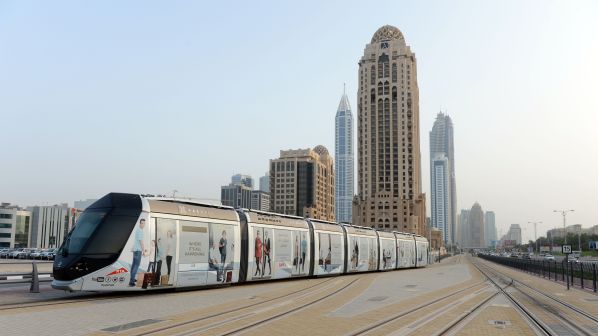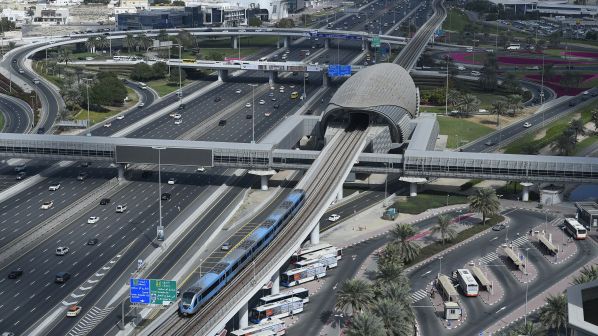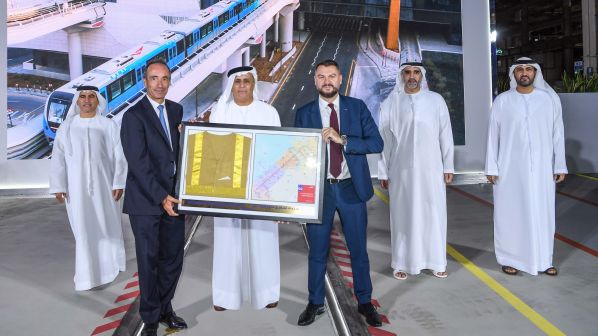A Keolis-led joint venture has begun operating and maintaining Dubai’s driverless metro network and operating the emirate’s light rail network under a nine-year contract awarded by the Roads & Transport Authority (RTA) on January 31.
The Keolis-MHI1 joint venture includes Mitsubishi Heavy Industries Engineering (MHI) and Mitsubishi Corporation (MC) which have both been heavily involved in the construction and development of Dubai’s metro network since 2005. The joint venture replaces Serco, which has run the network since the opening of the first line in 2009. The new contract spans 15 years, including a nine-year fixed term contract with three possible two-year extensions.
To celebrate the handover, an official ceremony was held at Al Rashidya metro depot in Dubai, in the presence of RTA director general and chairman of the board of executive directors, His Excellency Mattar Mohammed Al Tayer, Keolis Group international CEO, Mr Bernard Tabary, MHI chief regional officer for Europe, Middle-East and Africa, Mr Kentaro Hosomi, and Keolis-MHI managing director, Mr Wallace Weatherill.

The transition of assets and systems between operators over a seven-month period went smoothly, in line with RTA’s requirements which called for Keolis-MHI1 to retain a majority of Serco’s workforce who have acquired extensive experience in operating and maintaining Dubai’s metro and tram networks. To facilitate the move, Keolis sent in a transition team which included 52 staff dedicated to mobilisation on the ground, alongside 35 experts in operations, maintenance, human resources, marketing and customer relations.
Keolis-MHI is now responsible for operating and maintaining the Dubai Metro Red and Green lines and operating the Dubai Tram. The company will operate and maintain all metro and tram network assets, from trains and control centres to stations and associated infrastructure.
The contract also covers the operation of the fare systems, and full coordination and integration of Dubai’s metro, tram and other means of transport. The service must meet the highest standards of security and safety for passengers, while demanding performance indicators have been set for operation and punctuality.

The metro has two lines covering a total of 90km, including the Route 2020 branch on the Red Line, with 15.8km of tunnel. Its 53 fully air-conditioned stations offer a host of facilities, from retail outlets to Wi-Fi.
The network has 129 metro trains, including 79 Kinki Sharyo trains delivered by Mitsubishi in 2009 and 50 Metropolis trains built by Alstom. The network provides access to key locations including Dubai International Airport, Burj Khalifa, Dubai Healthcare City and the Expo 2020 site, where the United Arab Emirates is set to host a World Expo for six months from October 2021.
The city’s catenary-free tram network, which opened in 2014, uses an APS ground-level power supply system. The network totals 10.6km, serving 11 stations with 11 Alstom Citadis LRVs, and connects to two metro stations: Dubai Marina and Jumeirah Lake Towers.
An in-depth feature on Keolis’ role in operating the Dubai network will appear in the October issue of IRJ.

